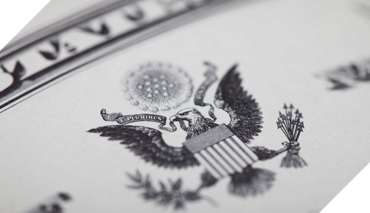
Federal Litigation Update: Amendments to the Local Rules for the Southern District of Florida Go Into Effect December 1, 2016
On November 4. 2016, the United States District Court for the Southern District of Florida issued Administrative Order 2016-56 announcing several amendments to the Local Rules of the Southern District of Florida. The amendments will impact calendaring response deadlines, acceptance of service of filings, and time limitations to serve discovery motions, among other things. The amendments to the Local Rules go into effect December 1, 2016. A copy of Administrative Order 2016-56 and the amended rules can be read here and significant amendments are discussed below.
A. S.D. Fla. L.R. 5.1(e) – Consent to Service
S.D. Fla. L.R. 5.1(e) was added to the local rules to provide that when a filer registers as an electronic filing user through the Southern District’s CM/ECF system, such registration constitutes consent to receive electronic service pursuant to Fed. R. Civ. P. 5(b)(2)(E) and Fed. R. Crim P. 49. Additionally, not only does registration with CM/ECF constitute consent to electronic service under 5.1(e), but now such registration also acts as a waiver of any right to receive service by any other means. Additionally, the rules provide that for those documents which must be served but not filed, such as discovery requests, such service can be effected via email to the email address designated by the attorney for receipt of notice of electronic filings through the CM/ECF system.
B. S.D. Fla. L.R. 7.1(c)(1) – Time for filing
The amendments also have changed the time computations for responding to motions served electronically in the Southern District. Under the previous rules, electronic filing via CM/ECF was treated the same as service via mail for purposes of calculating time to respond. Towards that end, the prior version of 7.1(c)(1) provided for an additional 3 days on top of the standard 14 days for a response and 7 days for a reply for those documents served either by electronic service or via mail.
However, the amendments have eliminated this additional 3 days for electronically filed documents. As a result, S.D. Fla. L.R. 7.1(c)(1)(A) now provides that electronically filed documents are now treated the same as documents served via hand delivery. Starting December 1, 2016, if a motion or memorandum of law was filed via CM/ECF or hand delivery, responses to such motions are due within 14 days after the motion was filed and replies to such responses are due 7 days after filing of the response.
7.1(c)(1)(B) was amended to clarify that the 3 additional day rule still applies in cases where service is only by mail. Additionally, the rule was amended to trigger the start date for the 14/7 from the date that motion was certified as being mailed. Under the prior rule, the 14/7 day response timing was triggered from the date of delivery. It is important that counsel remember these new timing rules in order to avoid missing deadlines post-December 1, 2016.
C. S.D. Fla. L.R. 26.1(g) – Timing of Presentation of Discovery Disputes
Local Rule 26.1(g)(1) was also amended by the Court to further clarify the time limitation to serve discovery motions. Under the revised rule, all discovery disputes shall be presented to the Court via motion (or other Court-approved method) within 30 days from: a) the original due date, or later date if extended by the Court or parties agreement, of the response or objection to the discovery that is subject to the dispute; b) the date of deposition in which the dispute arose; or c) the date on which a party first learned of or should have learned of a purported deficiency concerning the production of discovery materials. However, the rule notes that the 30 day period can be extended once for a period up to 7 days by an unfiled, written stipulation between the parties, provided that the stipulation does not conflict with a Court order.
The amended rule also makes clear that the failure to present a discovery dispute within the 30 day timeframe, absent a showing of good cause for delay, may constitute a waiver of the relief sought. It should be noted that the rule was changed from a showing of “reasonable” cause to a showing of “good” cause. How this slight change will affect untimely discovery disputes remains to be seen.
D. S.D. Fla. L.R. 88.10 – Criminal Discovery
Local Rule 88.10 was amended to allow for (and perhaps encourage) criminal defendant to request that the Court enter a Standing Discovery Order, which provides for uniform discovery under Rule 16 of the Federal Rules of Criminal Procedure. Local Rule 88.10 also provides that, once the Court enters a Standing Discovery Order, criminal defendants’ reciprocal discovery obligations and duties are likewise uniform. Additionally, Local Rule 88.10 requires/reminds the Government of its constitutional obligations to provide favorable evidence to criminal defendants under seminal Supreme Court decisions such as Brady v. Maryland, United States v. Agurs, Giglio v. United States, and Napue v. Illinois. Finally, Local Rule 88.10 provides for uniform production of forensic evidence for criminal defendants’ inspection and testing.
*****
Fuerst Ittleman David & Joseph’s litigation practice has a long record of successfully resolving high stakes cases on behalf of clients across a wide range of industries and in numerous forums. If you or your company is in need of representation in a case involving a complex legal dispute, contact us at (305) 350-5690 or contact@fidjlaw.com for a free consultation.


